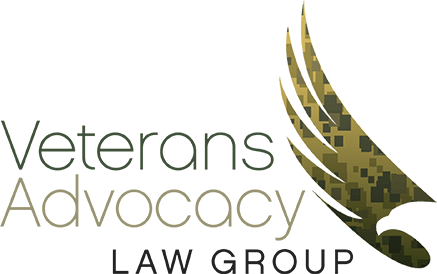The technology transfer (T2) program of the U.S. Department of Defense (DoD) is aimed at utilizing research funded by the DoD for the public's benefit as well as advancing the interests of private industry in the commercial market. The program involves licensing or transferring technologies developed for national security purposes from defense laboratories to the private sector, provided they have non-defense applications. Thus, T2 helps improve commercialization, industrial base, and national technology.
The T2 program employs various mechanisms and includes several different types of agreements. Below is a brief description of each.
Cooperative Agreement (CA)
Authorized by 2 CFR §200.24, CA enables the transfer of valuable items to non-federal parties for public purposes from a federal awarding agency. It is not intended for acquiring service and/or property for the direct benefit of or use by the federal awarding agency and is therefore exempt from the Federal Acquisition Regulation. A CA entails significant involvement between the non-federal partner and the federal awarding agency in completing the activity envisioned by the CA. Grants, in contrast, involve the awarding agency providing funding for the suggested project but do not involve the agency much beyond monitoring the grantee's progress and grant compliance. Federal labs use grants and CAs to fund R&D in academic institutions, industry, and nonprofits. Intellectual property and IP rights are significant components of these R&D activities.
Cooperative Research and Development Agreement (CRADA)
CRADA, authorized by 15 U.S.C. 3710a, facilitates cooperative research and development (R&D) efforts between a non-federal partner and a federal laboratory. The partner is analogous to a service-disabled, veteran-owned small business (SDVoSB), veteran-owned small business (VoSB) contractor, or another contractor in a government contract. In the DoD, CRADA subjects must align with non-federal entities' commercial technology objectives and must be within the scope of the mission of the DoD lab. CRADA is not a procurement contract; thus it is not subject to the Federal Acquisition Regulations (FAR). Accordingly, rather than by the contracting officer, it is signed by the federal laboratory director. Partners working with the federal laboratory can be from academia, industry, or nonprofit sectors. Lab directors are instructed to prioritize SDVoSBs, VoSBs, or other small businesses as well as consortia consisting of them when considering CRADA agreements.
A typical CRADA includes a joint work statement that outlines the cooperative R&D activities, the partner's marketing initiatives, and task allocation between the federal laboratory and its partner. The agreement also specifies handling intellectual property (IP) rights resulting from the R&D work and dispute resolution. While the federal lab can provide equipment, expert personnel, facility access, and materials, it cannot contribute funds towards the agreement effort. On the other hand, the partner can provide all these resources and also contribute funding.
Education Partnership Agreement (EPA)
The DoD uses EPAs to promote and improve the study of scientific subjects at various educational levels. This is achieved by lending scientific equipment commonly used by educational institutions and is deemed appropriate to support the agreement by the lab director. Further, this equipment must be extra to the needs of the lab. In addition, the DoD may offer lab personnel to teach science courses, assist in developing science curricula, provide internship opportunities, involve faculty and students in lab projects, and offer academic and career guidance to the institution's students.
Facility Use/Service Agreement
Through these agreements, a non-governmental entity can utilize the capabilities, equipment, and/or unique facilities of the DoD, not readily accessible in the private sector, either with or without reimbursing the cost to the U.S. Government.
License Agreement
The Government possesses the authority to grant licenses in patents owned by the Government. Although not always, these licenses are usually non-exclusive, revocable, and royalty-free. The Government-owned patents cover inventions created while the inventors endeavor within the scope of their government employment. The ownership of such inventions belongs to the Government by the terms of the inventor’s employment. However, when inventions are made by an employee of a Government contractor, different scenarios may exist. For example, suppose a contractor invents something while working within the scope of a government contract. The contractor has two options regarding ownership of the invention. In the first option, the contractor retains ownership of the invention and applies for a patent. Under this option, the Government is entitled to an irrevocable, non-exclusive, non-transferable, paid-up license. This permits the Government to use the invention, known as a "subject invention" per the Defense Federal Acquisition Regulation Supplement (DFARS)/FAR, for its own use or to have it used worldwide on the Government's behalf. In the second option, the contractor transfers ownership of the invention to the Government. If the contractor gives ownership to the Government, the contractor still retains a non-exclusive, royalty-free license worldwide. This applies to each subject invention.
If the Government owns an invention that is not protected by a patent but has not been publicly disclosed, it can grant an invention license agreement.
Test Services Agreement (TSA)
The DoD labs can offer lab services to test computer software, equipment, materials, models, and other items for a proposed fee. However, foreign government agencies are not able to access these services. The TSA is used when the government lab provides the service with no technical participation from the requesting partner. The service must be for legitimate testing purposes, not a disguised research project. To access the requested service per the DoD's condition, the partner must guarantee it will not create unnecessary competition with the private sector. The partner retains ownership of any intellectual property and technical data (TD) resulting from the testing.


